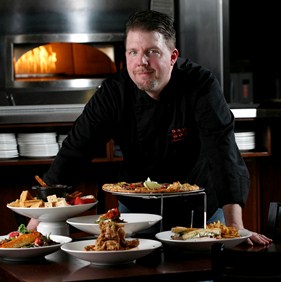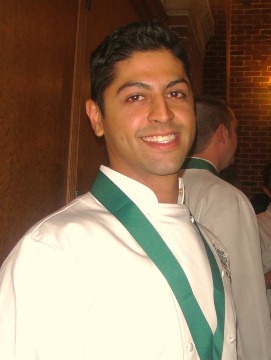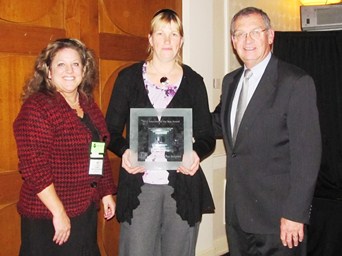Guest Speaker: Yes, Chefs Can Get Along with Owners
Saturday, 31 March 2012 20:44
 The executive chef of two-unit Saul Good Restaurant & Pub in Lexington, Ky., admits to learning a lot of hard lessons about how chefs and owners should get along, but he’s gotten a crash course in doing it the right way from founder Rob Perez. Chef Mayer shares some insights into why he believes “ours is not the typical owner-operator and chef relationship.”
The executive chef of two-unit Saul Good Restaurant & Pub in Lexington, Ky., admits to learning a lot of hard lessons about how chefs and owners should get along, but he’s gotten a crash course in doing it the right way from founder Rob Perez. Chef Mayer shares some insights into why he believes “ours is not the typical owner-operator and chef relationship.”
By Jeffrey Mayer
I’m like a lot of chefs: a culinary dreamer who has a certain philosophy about the foods I want to cook. But when I first started talking to Rob about Saul Good, I saw the opportunity to work with him as a chance to learn a hell of a lot from a successful, business-savvy guy, somebody who knows how to make a whole concept work.

 The recent Farming for the Future Conference promoted new ideas and learning to the benefit of all.
The recent Farming for the Future Conference promoted new ideas and learning to the benefit of all. A student club at The Culinary Institute of America serves to enlighten and call to action on global social issues.
A student club at The Culinary Institute of America serves to enlighten and call to action on global social issues. Women Chefs & Restaurateurs’ 2011 Educator of the Year acknowledges that any chef can serve virtually anything any time of year. But what have we sacrificed? Today’s culinary student is caught in the middle.
Women Chefs & Restaurateurs’ 2011 Educator of the Year acknowledges that any chef can serve virtually anything any time of year. But what have we sacrificed? Today’s culinary student is caught in the middle. Of the three things you can manage—cost, quality and quantity—you can realistically only manage two. Or so thought the Institute for the Culinary Arts at Metropolitan Community College .
Of the three things you can manage—cost, quality and quantity—you can realistically only manage two. Or so thought the Institute for the Culinary Arts at Metropolitan Community College .